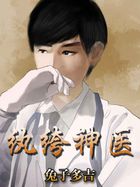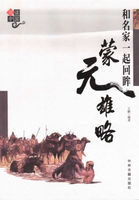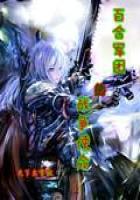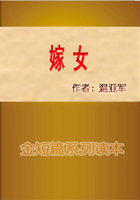"One of the powerful means of struggle, dictated by our revolutionary past and present, is political terrorism, consisting of the annihilation of the most injurious and influential personages of Russian autocracy in given conditions. Systematic terrorism, in conjunction with other forms of open mass-struggle (industrial riots and agrarian risings, demonstrations, etc.), which receive from terrorism an enormous, decisive significance, will lead to the disorganisation of the enemy. Terrorist activity will cease only with the victory over autocracy and the complete attainment of political liberty. Besides its chief significance as a means of disorganising, terrorist activity will serve at the same time as a means of propaganda and agitation, a form of open struggle taking place before the eyes of the whole people, undermining the prestige of Government authority, and calling into life new revolutionary forces, while the oral and literary propaganda is being continued without interruption. Lastly, the terrorist activity serves for the whole secret revolutionary party as a means of self-defence and of protecting the organisation against the injurious elements of spies and treachery."
In accordance with this theory a "militant organisation" (Boevaga Organisatsia) was formed and soon set to work with revolvers and bombs. First an attempt was made on the life of Pobedonostsef;
then the Minister of the Interior, Sipiagin, was assassinated; next attempts were made on the lives of the Governors of Vilna and Kharkof, and the Kharkof chief of police; and since that time the Governor of Ufa, the Vice-Governor of Elizabetpol, the Minister of the Interior, M. Plehve, and the Grand Duke Serge have fallen victims to the terrorist policy.*
In this list I have not mentioned the assassination of M.
Bogolyepof, Minister of Public Instruction, in 1901, because I do not know whether it should be attributed to the Socialist-
Revolutionaries or to the Narodovoltsi, who had not yet amalgamated with them.
Though the Social Democrats have no sentimental squeamishness about bloodshed, they objected to this policy on the ground that acts of terrorism were unnecessary and were apt to prove injurious rather than beneficial to the revolutionist cause. One of the main objects of every intelligent revolutionary party should be to awaken all classes from their habitual apathy and induce them to take an active part in the political movement; but terrorism must have a contrary effect by suggesting that political freedom is to be attained, not by the steady pressure and persevering cooperation of the people, but by startling, sensational acts of individual heroism.
The efforts of these two revolutionary parties, as well as of minor groups, to get hold of the industrial proletariat did not escape the notice of the authorities; and during the labour troubles of 1896, on the suggestion of M. Witte, the Government had considered the question as to what should be done to counteract the influence of the agitators. On that question it had no difficulty in coming to a decision; the condition of the working classes must be improved. An expert official was accordingly instructed to write a report on what had already been done in that direction. In his report it was shown that the Government had long been thinking about the subject. Not to speak of a still-born law about a ten-
hour day for artisans, dating from the time of Catherine II., an Imperial commission had been appointed as early as 1859, but nothing practical came of its deliberations until 1882, when legislative measures were taken for the protection of women and children in factories. A little later (1886) other grievances were dealt with and partly removed by regulating contracts of hire, providing that the money derived from deductions and fines should not be appropriated by the employers, and creating a staff of factory inspectors who should take care that the benevolent intentions of the Government were duly carried out. Having reviewed all these official efforts in 1896, the Government passed in the following year a law prohibiting night work and limiting the working day to eleven and a half hours.
This did not satisfy the workmen. Their wages were still low, and it was difficult to get them increased because strikes and all forms of association were still, as they had always been, criminal offences. On this point the Government remained firm so far as the law was concerned, but it gradually made practical concessions by allowing the workmen to combine for certain purposes. In 1898, for example, in Kharkof, the Engineers' Mutual Aid Society was sanctioned, and gradually it became customary to allow the workmen to elect delegates for the discussion of their grievances with the employers and inspectors.
Finding that these concessions did not check the growing influence of the Social Democratic agitators among the operatives, the Government resolved to go a step further; it would organise the workers on purely trade-unionist lines, and would thereby combat the Social Democrats, who always advised the strikers to mix up political demands with their material grievances. The project seemed to have a good prospect of success, because there were many workmen, especially of the older generation, who did not at all like the mixing up of politics, which so often led to arrest, imprisonment and exile, with the practical concerns of every day life.
The first attempt of the kind was made in Moscow under the direction of a certain Zubatof, chief of the secret police, who had been himself a revolutionary in his youth, and afterwards an agent provocateur. Aided by Tikhomirof, the repentant terrorist whom I















